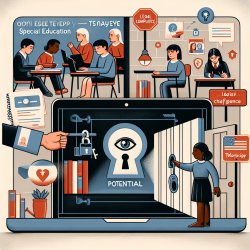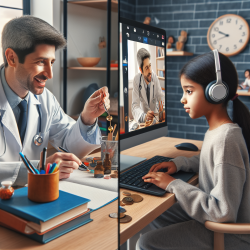Introduction
Creating a supportive and impactful medical education program (MEP) for underrepresented in medicine (URiM) students is crucial for addressing health disparities and improving healthcare outcomes in underserved communities. A recent study titled "Underrepresented in medicine students’ perspectives on impactful medical education" provides valuable insights into how medical education can be optimized to support URiM students. This blog explores the study's findings and offers practical recommendations for practitioners seeking to enhance their educational programs.
Key Findings from the Study
The study identified four main themes that URiM students perceive as essential for an impactful MEP:
- Grounding Learning in the Community: Engaging with local communities through student-run clinics and community-based rotations helps students build professional competencies in a real-world context.
- Progressive System-Based Practice Competency: Interprofessional and multidisciplinary learning experiences are crucial for cultivating a 'just' healthcare system and improving patient outcomes.
- Social Justice Competency: Integrating a longitudinal social justice curriculum empowers students to address health disparities and advocate for systemic change.
- Trauma-Informed Medical Education Delivery: Providing early and ongoing mentoring, along with supportive policies, maximizes learning and mental health for URiM students.
Implementing Study Outcomes
Practitioners can enhance their medical education programs by incorporating the following strategies based on the study's findings:
- Community Engagement: Develop partnerships with local organizations to facilitate community-based learning opportunities. This can include student-run clinics and rotations in underserved areas.
- Interprofessional Learning: Create collaborative learning environments where students from different healthcare disciplines work together. This approach fosters teamwork and improves the understanding of diverse healthcare systems.
- Social Justice Curriculum: Integrate social justice topics into the curriculum, focusing on health disparities, advocacy, and structural competency. Encourage students to engage in research that addresses these issues.
- Mentoring and Support: Establish mentorship programs that connect URiM students with experienced mentors. Provide resources and support services that address the unique challenges faced by these students.
Encouraging Further Research
While the study provides valuable insights, further research is needed to explore the impact of these strategies on URiM students' educational experiences and outcomes. Practitioners are encouraged to conduct their own research to assess the effectiveness of implementing these recommendations in their programs.
Conclusion
Optimizing medical education for URiM students is essential for fostering a diverse and competent healthcare workforce. By grounding learning in the community, promoting interprofessional collaboration, integrating social justice into the curriculum, and providing trauma-informed support, educators can create a positive and impactful learning environment. These efforts not only benefit URiM students but also contribute to reducing health disparities and improving healthcare outcomes in underserved communities.
To read the original research paper, please follow this link: Underrepresented in medicine students’ perspectives on impactful medical education.










